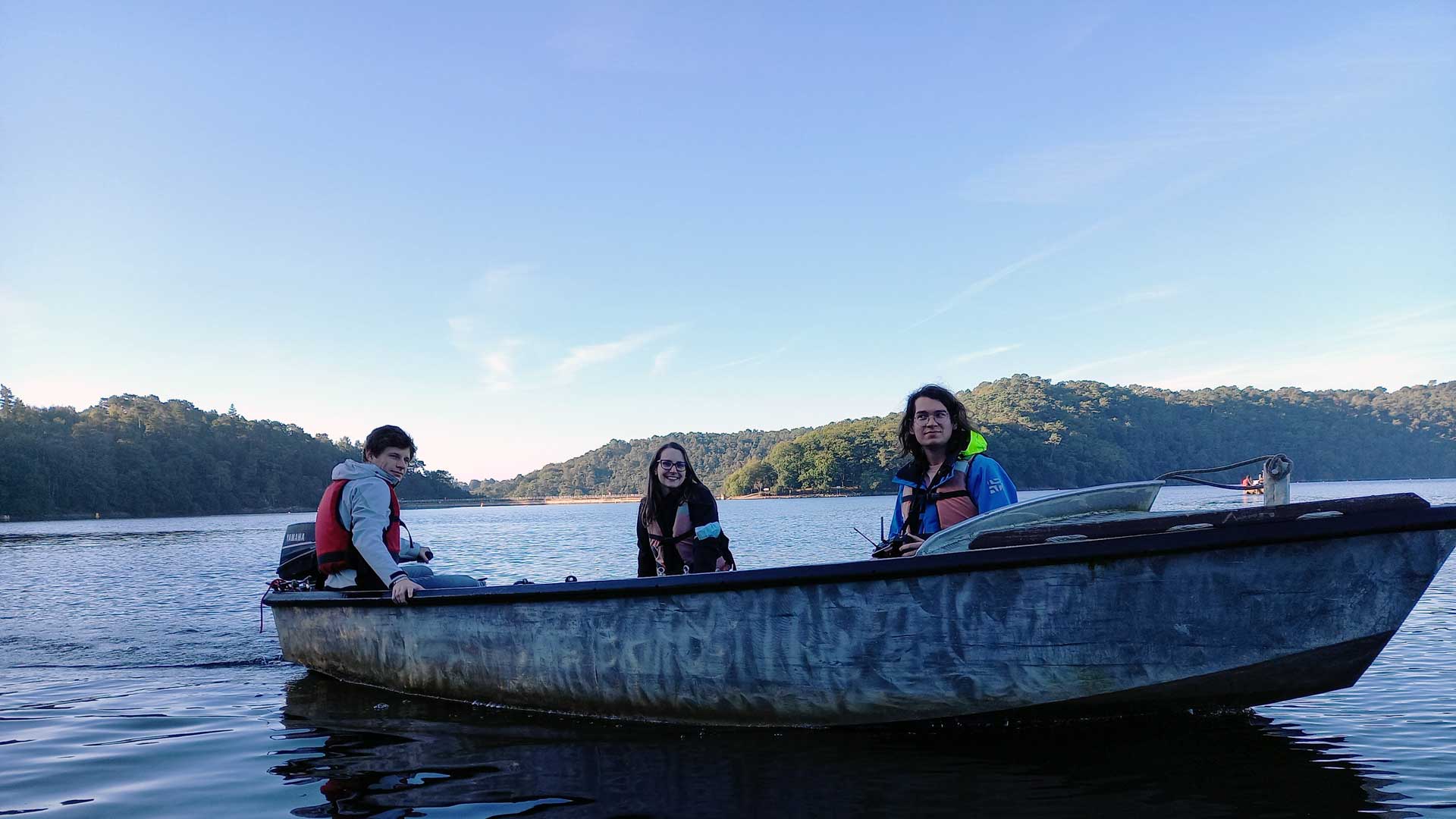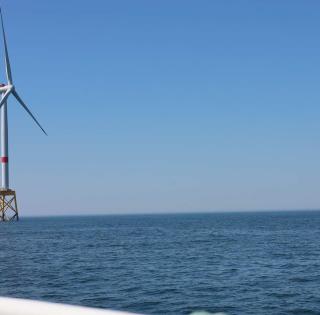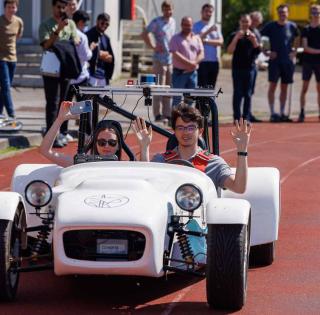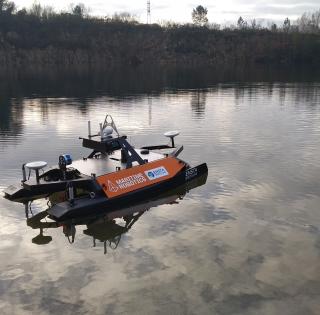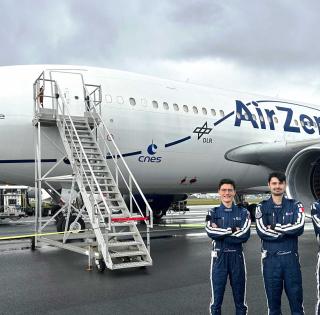
How did you hear about ENSTA Bretagne?
While I was doing my BSc Computer Science at Universidade Federal do Rio Grande do Sul (UFRGS) in Brazil, I had the opportunity of working at the university’s robotics research lab. This was a scientific initiation program organised in my free time, which took up about 20 hours a week.
It was during this experience that I got to work with Luc Jaulin, a robotics research professor at ENSTA Bretagne who is a global authority in this field. After the program, I felt inspired to enrol on the engineering in autonomous robotics course he leads at ENSTA Bretagne.
How did your arrival at ENSTA Bretagne go?
A problem with my visa meant that I didn’t arrive until October, after the course had already started. Three weeks later, we were in lockdown again. Luckily my accommodation was on campus, at the student residence. There were other Brazilian students too, and this was an opportunity for us to meet each other. I also got on well with the other students in my cohort. There was a really good group atmosphere, we helped each other out, so I soon settled in.
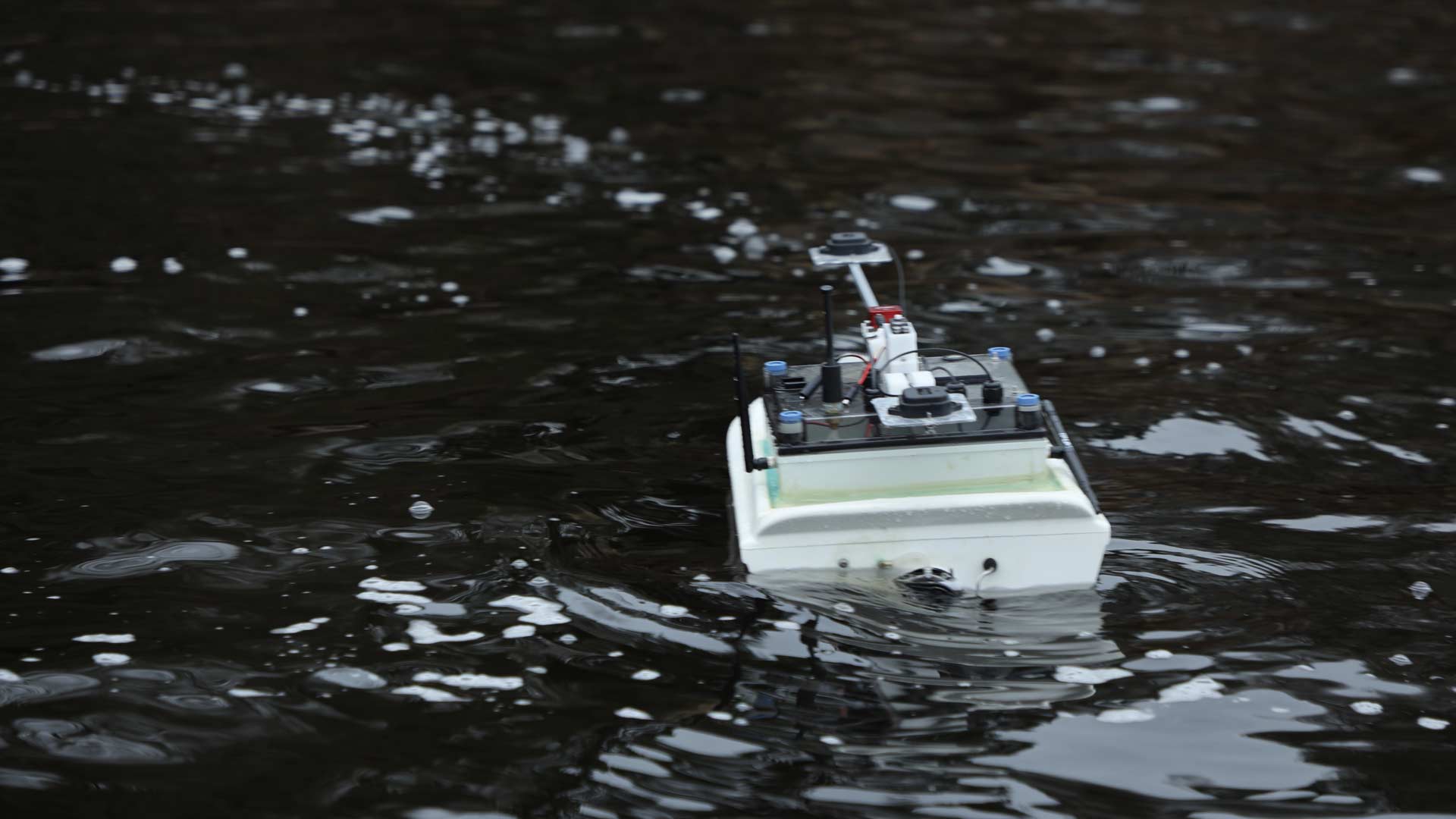
What are the memorable highlights of your course?
First of all, I was impressed by the robotics equipment. The facilities are world-class – I haven’t seen anything like that anywhere else. The equipment really is excellent, and thanks to the extensive range of tools and devices available I was able to perform all sorts of experiments which I hadn’t previously conducted.
The Guerlédan experiment was also a hugely formative experience, in which I joined all of the students majoring in robotics at a lake to test out our robots and their algorithms.
Where and on which theme did you do your internships?
I did my 2nd year internship at ENSTA Bretagne’s research lab. My subject focused on the localization algorithms of ground robots. I wanted to work on interval methods with Luc Jaulin. This is an approach which, although not often used in robotics, is highly relevant nonetheless.
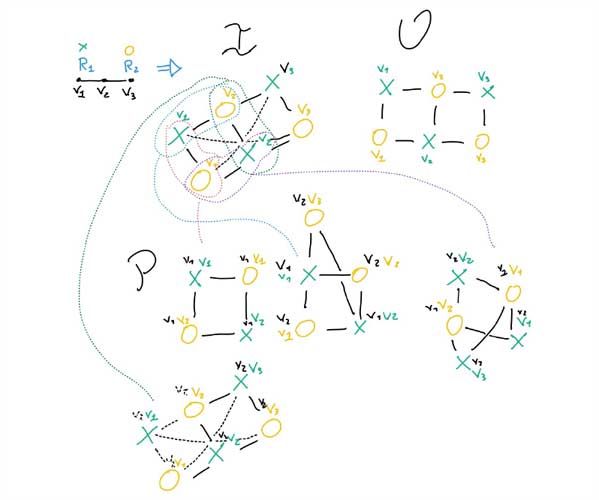
For my end-of-study internship, I came to the Computer Science Laboratory of the École Polytechnique (LIX) in Palaiseau. My subject was much more fundamental. It bore primarily on mathematics and I really enjoyed it.
Are you going to continue your research for your thesis?
Yes, this was something I had already been considering. At LIX, I will be able to delve further into the subject that I explored for my end-of-study project. Luc Jaulin is one of my co-supervisors, so it’s a logical continuation.
After running a series of experiments at ENSTA Bretagne, I realised that what I really enjoy is the theoretical aspect – and that a lot of methods and outcomes are too far removed from reality. It’s important to factor in the environment in which the robot is operating and its limits. So I’m working on formal methods for mobile robotics which make it possible to take into account not only the limitations of the robots but also the objectives assigned to each task set to produce reliable, guaranteed results.






